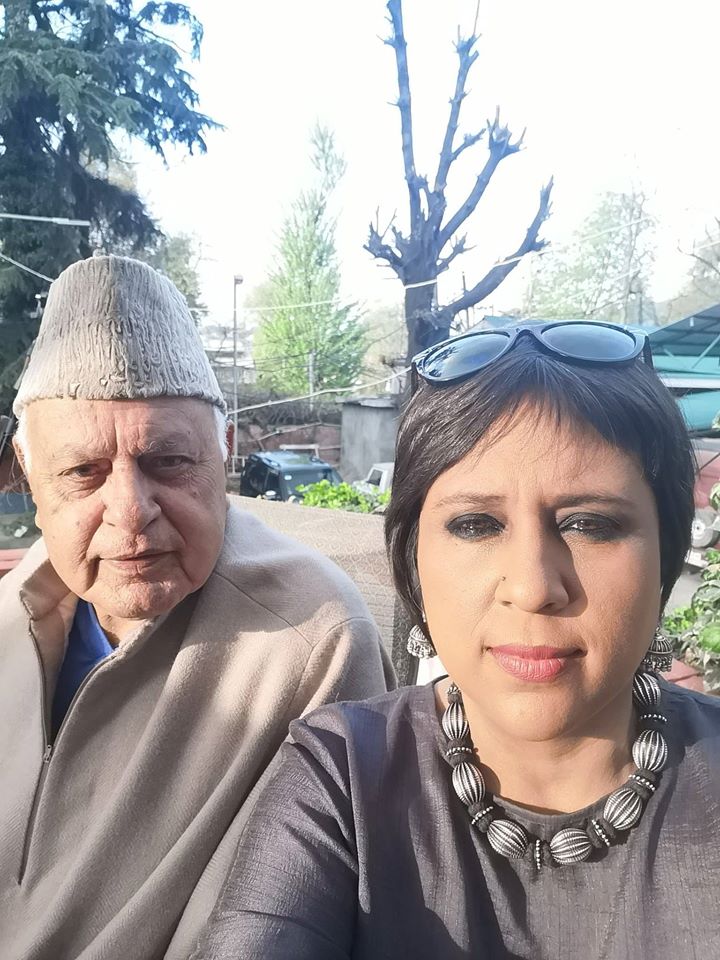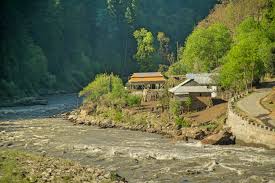An external western observer, like myself, who had to ask the question: “What is Kashmir’s policy tending to and why is it tight in the Indian grip?”, It would be difficult to find a plausible answer.
In truth, only by reading the pages of the most accredited journalists in Pakistan, India or Kashmir can one attempt to reconstruct the complex political puzzle.
Today I casually focused on the words of a journalist, Barkha Dutt, with her piece Feb 22, 2020, which titled: “Why jailing Kashmir’s leaders is wrong, undemocratic and unwise, writes” and on his statement: “India can offer many explanations for his decisions on Kashmir – a complex history, the desire to integrate the country under a single law, terrorism and the misuse of social media. But there is no good reason to detain leaders who have sworn on the Constitution ”

If it is true that not only India or Kashmir, but we all live in an era of reduced attention and reduced public memory, then it becomes difficult to think of a ransom of the Kashmiris. Political corruption and inability to turn on the lights of world social networks on what has been going on for more than six months now, since that fateful August 5, 2019, in which the Indian curfew started, perhaps it is precisely the elements to be defeated.
But how? Ever since Farooq Abdullah, the patriarch of Jammu and Kashmir politics, has been arrested on his return to Srinagar only for praising, during a memorial to commemorate the late Party leader Bharatiya Janata (BJP) and former Prime Minister Atal Bihari Vajpayee, singing the hymn in public: “Bharat Mata ki Jai”. He was disturbed by the separatists then but did not deny what he had said on his return to Srinagar.
Farooq Abdullah has now been held in prison like many other J&K politicians for over six months, but what do the people of Kashmir do? This state of murky acquiescence can turn into a dangerous slumber. Maybe the Indian PM Modi wants this? Is this the way to the beginning of the end of a country like J&K that is culturally and traditionally independent? Many, too many questions pile up in my head, perhaps mindful of the great western revolutions, so it seems absurd to me that the proud people of Kashmir are under the Indian yoke without that movement of challenge, of redemption of their dignity as a proud people.
A state plagued by secessionist and extremist politics has its skeletons in the closet, its sins, its fears, hesitations, weaknesses, existential anxieties. Did he do what he could to resist India?
Six months in an Indian prison are hard to pass, yet they have passed since he was arrested, along with other former prime ministers, Omar Abdullah and Mehbooba Mufti. The charges against them are subject to the draconian Public Safety Act (PSA) (1).
But what exactly is this PSA abbreviation? A tool to kidnap prominent politicians, those who annoy you to block their political propaganda?
Or a tangle of lies, easy to build in a state that is perched on fascist positions such as that set up by Modi? Put simply, even simple criticisms, such as those made against Interior Minister Amit Shah, are such as to bring the author of them to prison. So is this democracy? Could we call India a democratic country?
I seriously wonder what Trump’s visit to India consisted of: selling weapons and weaving business or trying to build bridges of peace with neighboring Pakistan? Perhaps the last hypothesis is the most remote in the face of the emergence of economic interests that make the Asian giant China a column that is currently shaky due to the Coronavirus, which led to a substantial economic crisis due to the blockade of Chinese exports.
Modi’s India is a giant made up of many pieces, which however seem to implode under the weight of the war he waged on Muslims with the recent upsetting episodes of death and violence. But, in the face of so many excellent arrests, I am very indignant that people do not go down the streets of Srinagar to protest against political detentions. The violation of fundamental human rights with reprisals everywhere, violence, rape, and kidnapping, as well as unjustified imprisonment of prominent political figures, should outrage the population.
Instead, the message that seems to be passing is that of disdain on the part of ordinary people towards the imprisoned political representatives, as if the latter had been deprived, not only of authority but also of dignity or role in the political hierarchy of belonging.
It seems that he left Narendra Modi free field to vent his anger towards anyone who does not side with him (apparently the same Sajad Lone, who called his brother and whose party had been an electoral ally of the BJP, later imprisoned).
So a policy, which tends to centralize all the composite burden of India in the hands of such a hard and unscrupulous man, will be the same one that will condemn it to social disintegration especially after the anti-Muslim racist proclamations and the absolute lack of tolerance towards ethnic minorities.
Separatism and jihadism will continue to be strong if a new policy that favors the democratic process of Kashmir along the tangent of its independence trajectory and separated from the logic of subordination to India is not seriously pursued. The Modi government may want to make it look as if it favors a new policy in Kashmir. But at the moment the violence, the overwhelming, even in terms of communication, the ambiguous messages launched have only encouraged separatists and jihadists.
The limit to which Kashmir should aim is that dictated by its millenary history, its culture, by the ancestral transhumance of peoples, customs and habits that no imposition on Modi can ever deviate from its original path. But for this to happen, a snap of the dignity of the population and a return to the founding values of an indigenous nation are needed.


Ahaa, its nice dialogue concerning thisarticle at this place at this webpage, I have read all that,so now me also commenting here.
Comments are closed.